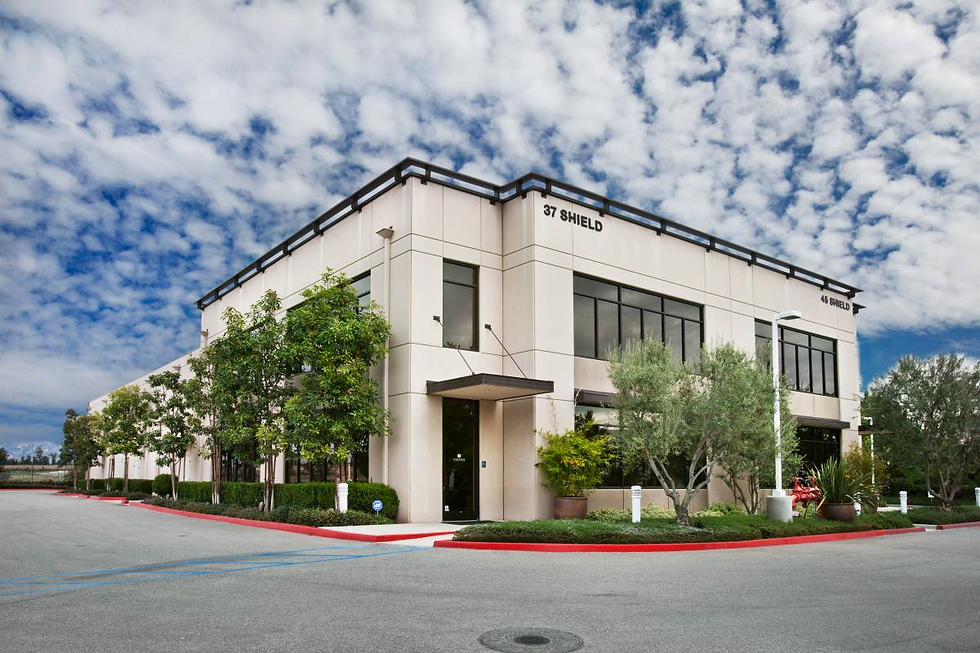What Is Disposition in Real Estate?
- Ryan Osterkamp

- May 12, 2025
- 4 min read
Disposition is a core concept in commercial real estate, yet it’s a term that often gets overlooked until it’s time to take action. Whether you’re a seasoned investor, a business owner, or exploring commercial real estate for sale for the first time, understanding disposition can help you maximize your returns and make strategic decisions about your property portfolio. In this article, we’ll break down what disposition means in commercial real estate, explore the various ways to dispose of a property, and highlight the advantages of working with a commercial real estate agent throughout the process.
What Is Disposition in Commercial Real Estate?
In commercial real estate, disposition refers to the process of selling, leasing, or otherwise transferring ownership or control of a commercial property. It’s the opposite of acquisition: rather than adding to your portfolio, you’re strategically unloading assets to meet business goals, improve cash flow, or redeploy capital into new real estate investment opportunities. Disposition is typically the final stage in the commercial real estate investment lifecycle, following acquisition, management, and value creation.
Disposition can apply to all types of commercial real estate, including industrial real estate, office space, retail properties, and warehouse space for rent. Owners might pursue disposition to capitalize on market trends, eliminate underperforming assets, or respond to changes in their business strategy.
Common Disposition Strategies for Commercial Property
There are several ways to dispose of a commercial real estate property, each with its own advantages and considerations. Here are the most common disposition strategies:
Traditional Sale: The most straightforward approach is listing your commercial property for sale on the open market. This involves setting an asking price, marketing the property through commercial real estate listings, and negotiating with potential buyers. A traditional sale is ideal when you want to fully exit your investment and realize the property’s current market value.
Seller Financing: In some cases, the seller may finance the purchase for the buyer, allowing the buyer to make payments over time. This can expand your pool of potential buyers and may result in a higher sale price, but it also means you’ll continue to have a financial interest in the property until the loan is paid off.
1031 Exchange: A 1031 exchange allows you to defer capital gains taxes by reinvesting the proceeds from your disposition into another commercial property. This is a popular strategy for investors looking to grow or diversify their commercial real estate investment portfolio without an immediate tax hit.
Auction or Call for Offers: For unique or high-demand properties, an auction or a structured call for offers can create competitive bidding and potentially drive up the sale price. This approach is often used for properties that are difficult to value or have a broad appeal.
Lease Buyout or Subleasing: If you’re locked into a long-term lease on commercial space for rent or lease, you may be able to negotiate a lease buyout or sublease the space to another tenant. This is a form of disposition that doesn’t involve selling the property but allows you to exit your lease obligations.
The Disposition Process: From Strategy to Closing
A successful disposition involves several critical phases:
Strategy and Initial Pricing: Work with a commercial real estate agent to assess market conditions, determine your goals, and set a competitive asking price56.
Due Diligence and Final Pricing: Review property documentation, address any issues, and refine your pricing strategy based on feedback and updated market data.
Marketing: List your property on top commercial real estate websites, leverage your agent’s network, and target qualified buyers or tenants.
Negotiations: Evaluate offers, negotiate terms, and select the best proposal. Your agent will help you compare competing offers and structure the deal6.
Closing: Finalize contracts, complete inspections, and transfer ownership or lease rights.
Why Use a Commercial Real Estate Agent for Disposition?
Partnering with a commercial real estate agent or broker can make a significant difference in the outcome of your disposition. Here’s why:
Market Expertise: Commercial real estate agents have deep knowledge of local market trends, property values, and buyer demand. They can accurately price your property and position it to attract the right buyers or tenants.
Access to Networks and Listings: Agents have access to exclusive commercial real estate listings, databases, and industry contacts. This maximizes your property’s exposure and increases the likelihood of a successful sale or lease.
Negotiation Skills: Experienced brokers are skilled negotiators who can secure the best possible terms, whether you’re selling, leasing, or subleasing your commercial space.
Time and Resource Savings: Disposing of commercial property is complex and time-consuming. An agent manages the process end-to-end, from marketing to closing, allowing you to focus on your core business.
Strategic Guidance: Your agent can advise on the best disposition strategy-whether that’s a traditional sale, 1031 exchange, or another approach-based on your goals, property type, and current market conditions.
Conclusion
Disposition in commercial real estate is more than just selling a property-it’s a strategic decision that can unlock capital, streamline your portfolio, and position your business for future growth. Whether you’re considering a traditional sale, a 1031 exchange, or another disposition strategy, working with a knowledgeable commercial real estate agent or broker ensures you get expert guidance, maximum exposure, and optimal results.
If you’re ready to discuss disposition for your commercial real estate property, contact our team today. We offer comprehensive commercial real estate services, from valuation and marketing to negotiation and closing, helping you achieve your investment goals with confidence.







Comments